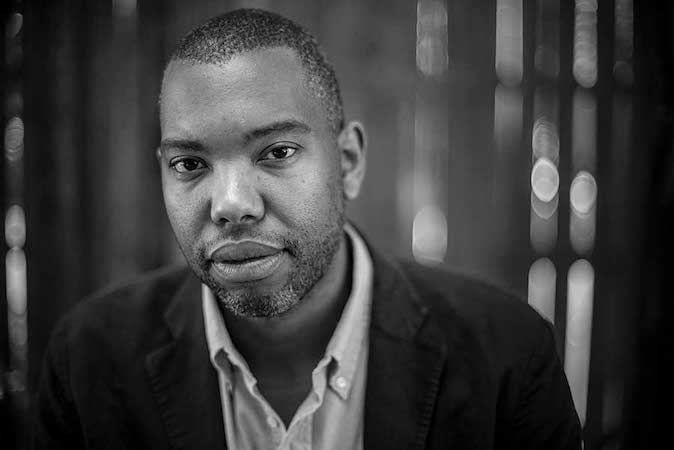Distinguished writer Ta-Nehisi Coates spoke at Skirball Center for Performing Arts yesterday in honor of Tony Judt, celebrated historian and founder of NYU’s Remarque — a program that supports multi-disciplinary study in Europe for doctorate and graduate students. Judt died of complications ALS in 2010.
Judt’s last public lecture was given 10 years ago at Skirball. His wife, Jennifer Homans, introduced the Coates lecture with a few words about Judt.
“The Tony Judt memorial lecture is not about Tony or his work, and it’s not a homage to him,” Homans said. “It’s offered in the spirit of tough and open discussion and presentation of a subject of the speaker’s choosing. The lecture is quite simply a platform for the speaker to tell us what’s on his mind.”
Coates — who is in residence at NYU’s Arthur L. Carter Journalism Institute — began his lecture by discussing the impact of Tony Judt’s work on his own writing.
“When you hear someone else talk about how Ta-Nehisi Coates is a pessimist, tell them it’s Tony’s fault,” Coates said. “I felt like when I read [Judt’s book] it gave me permission to write about the world as I saw it.”
Coates discussed the idea of identity politics — groups of people with a certain defining trait such as gender, race or sexuality sharing a set of political beliefs — and was quick to dismiss the claim that identity politics and economics are always separate.
“Abortion is very much an economic issue,” Coates said. “Having an unwanted child has an economic impact on you. Police killings are actually very much an economic issue.”
Coates also discussed how these issues, both in the past and the present, always seem to turn the victimized into the criminal. In the case of fugitive slave laws, the people who were running away from oppressive slave owners were considered to be breaking the law. Coates drew a comparison between these laws and how advocacy for gender-neutral bathrooms is attacked in the United States today: those who fight to use bathrooms that match their gender identity are often described as the aggressors.
Coates shifted his lecture to discuss recent allegations against Virginia’s attorney general and governor claiming they wore blackface in the 1980s. Coates spoke about how accessible information about their racist acts was, something he feels has changed over time.
“We’re in this era where you actually see the evil in front of you,” Coates said. “Past generations of students had the option of not seeing, and what you’ve lost is the ability to not see the very evil that’s going on.”
This is why, Coates reasoned, so many young people are fighting for identity politics issues such as safe spaces and trigger warnings.
“I am not charged for making something moral from what has been immoral for so long,” Coates said. “And so, as you go through that process as a young person, I understand that you might come up with some new vocabulary and some new needs that might be different than what the previous generations who enjoyed the luxury of myth, the luxury of shying away, the luxury of invisibility did not have to do.”
Despite claiming that many people think he’s a pessimist, Coates said that the idea that these issues are now so visible actually helps the public.
“I’ll say something optimistic: I think one of the reasons you see all of these essays about identity politics is not the fact that people want trigger warnings on their syllabi,” Coates said. “It’s because the power of invisibility is dissipating.”
The event concluded with a brief Q&A, during which an audience member asked a question regarding how minority children interact with spaces when they feel tokenized in their community and don’t want to engage with the texts.
“Giving this lecture was nice, writing it was better,” Coates joked when responding to the question. “What I am saying to you is that I don’t have much in the way of skills in terms of getting people to read people to read or listen to certain things. That doesn’t mean that you should do that.”
Email Mansee Khurana at [email protected].
Correction, Feb. 28: A previous version of this article incorrectly stated that this was the first Tony Judt memorial lecture. The article has been updated to reflect the correction.


























































































































































